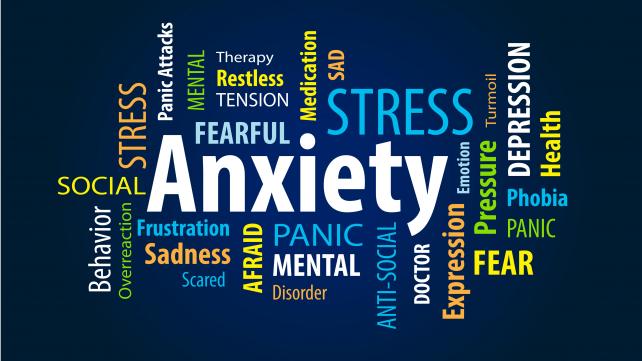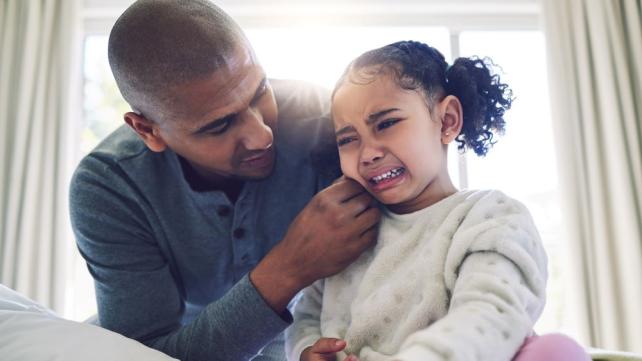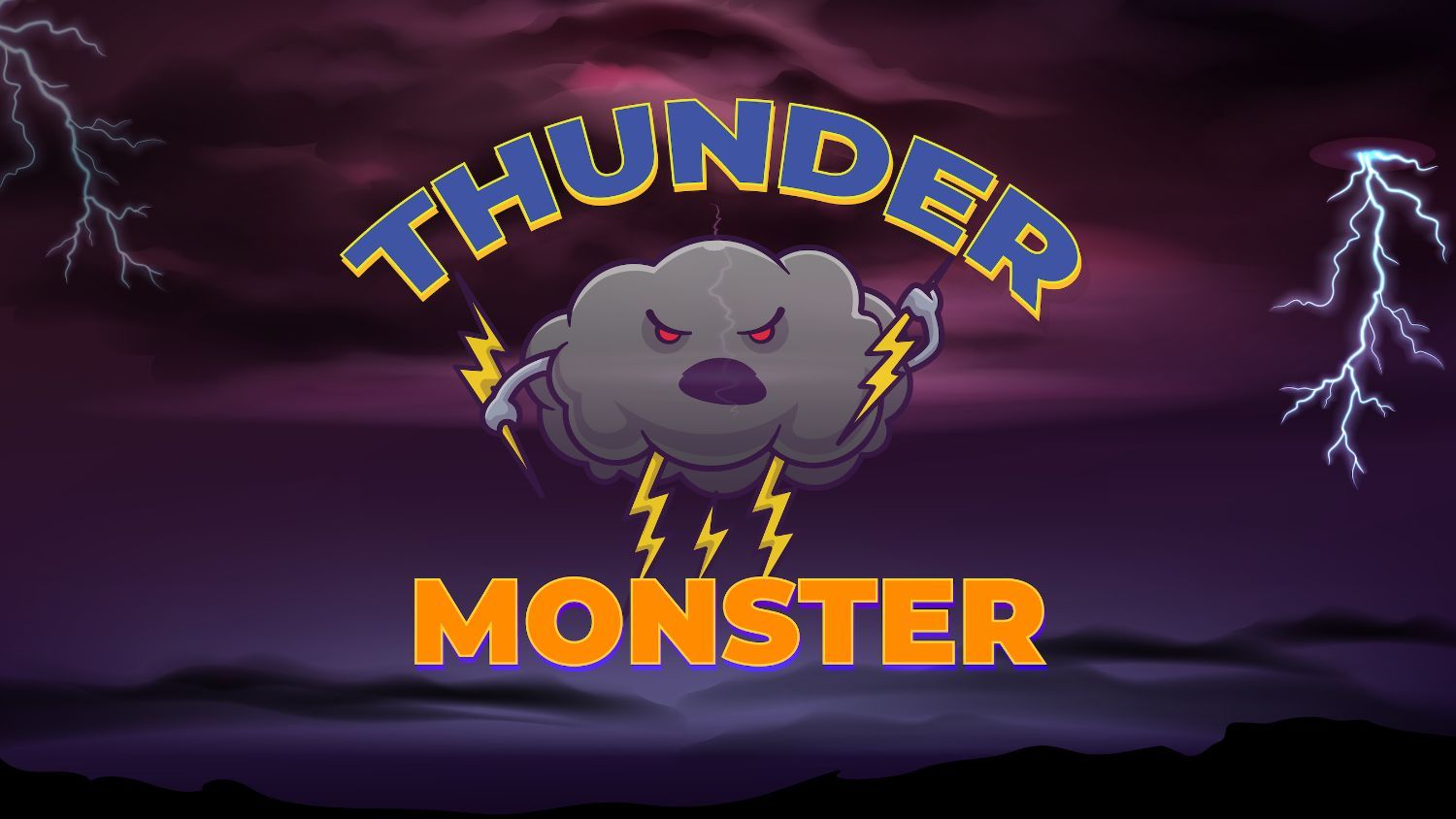|  | |  | Anxiety: Understanding the Signs and Symptoms By Zahirah Lynn Eppard It is not unusual for kids, even our youngest ones, to sometimes feel anxious. There are all kinds of stressors – big and small – in our everyday lives. Parents need to be able to distinguish between normal anxiety and stress and how to spot if there might be bigger challenges that need attention. Check out the signs and symptoms of physical, emotional, and social anxieties and learn more about how to differentiate between typical anxiety and anxiety disorders. |
| | | Parenting Tip It is hard to imagine a world without fear and anxiety. Parents have a particular responsibility to recognize their own challenges and to identify challenges impacting their children. It is critical to learn more, listen carefully, and reach out for help when needed. |
| |  | How to Help Your Child Overcome Their Fears By Uthman Guadalupe Fear is a crucial emotion for all of us. It naturally helps us recognize and deal with threats. You may notice your child being afraid of things that may seem unnatural. Children may fear the dark, monsters, or even something silly like a certain food. As a parent, seeing your child be afraid of things can worry you. By recognizing your child’s fears and listening to their concerns, you can discover effective ways to help them overcome these feelings. With parental guidance, children can learn to manage their emotions, paving the way for a healthier life. |
| | | Inspiration “Unfortunately, the stigmas surrounding anxiety and other mental health challenges within the Muslim community often prevent individuals from acknowledging they have a phobia. They may keep it a secret and learn to cope on their own or continue to suffer in silence.” – Wendy Díaz, Writer, Author, Community Activist |
| |
|
|  | Understanding Phobias: Finding Connections and Seeking Compassion By Wendy Díaz Phobias come in many shapes and forms, affecting millions globally and ranging from fears of heights, spiders, and confined spaces to less obvious triggers. They are usually unexpected, irrational, and yet deeply personal and can strike without warning, turning the most routine moments into frightening situations. For some, a simple ride up an escalator can become an overwhelming ordeal. For others, even the sight of a harmless creature can provoke an intense flight response. While phobias can happen in early childhood, most manifest between the ages of 15 and 20. Parents must be aware of their own triggers and be particularly mindful of any abnormal reactions their children are having to certain stressors. |
| | | Quranic Guidance “Surely in the remembrance of Allah do hearts find comfort.” (Surah Ar-Rad, 13:28) |
| |  | Learning about Generational Trauma and Breaking the Cycle By Sumayya Khan In our youth, we thought we would never be like our parents with our own kids. But unless we make a conscious effort to parent our children differently, we tend to repeat more or the same of what our parents did. It all comes down to epigenetics – where behaviours and environment affect our genes. Learning unhealthy behaviours over the years in our home environment influences us deeply as adults. Get more details about how generational trauma impacts your parenting and how you can break the cycle when dealing with your own children. |
| | | Interesting Facts The 2024 results of the American Psychiatric Association’s annual mental health poll show that U.S. adults are feeling increasingly anxious. - In 2024, 43% of adults say they feel more anxious than they did the previous year, up from 37% in 2023 and 32% in 2022.
- Adults are particularly anxious about current events (70%) — especially the economy (77%), the 2024 U.S. election (73%), and gun violence (69%).
- When asked about a list of lifestyle factors potentially impacting mental health, adults most commonly say stress (53%) and sleep (40%) have the biggest impact on their mental health.
- Younger adults (18-34 years old) are more likely than older adults (50+) to say social connection has the biggest impact on their mental health.
- Despite the increasing anxiety, most adults have not sought professional mental health support. In 2024, just one in four (24%) adults say they talked with a mental health care professional in the past year. Notably, younger adults (18-34) are more than twice as likely as older adults (50+) to have done so.
For more details about the research findings, see American Adults Express Increasing Anxiousness in Annual Poll; Stress and Sleep are Key Factors Impacting Mental Health. |
| |  | Remedies for Anxiety from the Quran and Sunnah By Wendy Díaz Until we reach the end of our lives, we will experience varying degrees of stress that may or may not trigger episodes of anxiety. Practicing different forms of self-care can help us and our loved ones reenergize and ward off stress and anxiety. Some examples are reading, taking a walk or hike, relaxing with family, traveling, getting a facial, painting, or watching a movie. Of course, reconnecting with Allah is the best form of self-care. Thankfully, the Quran and the Sunnah provide us with spiritual cures for anxiety and more. |
| | | | | |  | Storytime with Adam: Thunder Monster Adam is in for a real scare as the thunder roars and the power goes out! It is a fun story and also a nice way to start a family conversation about how to handle fears. (4:49) |
| | | Join our LIVE online children's classes now! |
| | | | |
|
|  | The Sound Vision Foundation has been a trusted source of Islamic knowledge for more than 30 years. Our work with the world-renowned puppets Adam and Aneesah pioneered creative programming for Muslim children, encouraging them to learn about and love their religion. We continue to bring sound content and engaging programs that stimulate minds, touch hearts, and strive to fulfill our mission of raising better Muslims, better neighbors, and better citizens. This latest effort is designed to support and empower Muslim parents to do the same. |
| | | |
|
| |
|
|